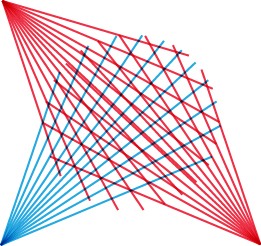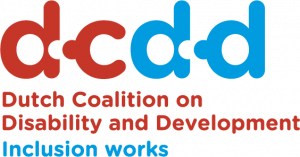Call for Submission: strong and practical examples of disability-inclusive SRHR activities.
Posted by Kimberley Meijers on July 17, 2017 at 1:31 pm

How can we include men, women, youngsters and children with disabilities in SRHR programmes? And how can we include SRHR in disability-specific programmes? ‘Leave no one behind’ is a central principle of the SDG’s, but challenges at implementation level are still
paramount.
Therefore, the Dutch Coalition of Disability and Development (DCDD) – a coalition of twelve organisations – is preparing a publication on SRHR and disability, in cooperation with Share-Net (the Dutch network on SRHR and HIV). This publication will be filled with practical information, interviews, recommendations, and most importantly: with practical examples. It will be spread among SRHR-, disability-, and mainstream organisations and policy makers. This call for submission is aimed at collecting those examples or ‘good practices’. We are looking for strong practical examples, cases and personal stories on SRHR projects or methods which are inclusive for persons with disability.
(A selection of) the different collected cases will be published later this year, and will be presented during an expert meeting in the Netherlands on SRHR and Disability, with Mrs. Catalina Devandas , the UN Special Rapporteur on Rights of Persons with Disabilities, as keynote speaker. Mrs. Devandas will visit the Netherlands between November 20th-22nd to present a report on SRHR and girls with disabilities. The date of the expert meeting will probably be Friday November 24th, 2017.
What are we looking for?
“SRHR” stands for all activities related to sexual and reproductive health and rights, like:
1. Improving maternal health;
2. Combatting HIV-Aids;
3. Sex education and services for young people;
4. Better access to contraceptives, antiretrovirals and other medicines;
5. Sexual and reproductive health care as part of an accessible, affordable basic healthcare system;
6. Advocacy for sexual health and rights of people with disabilities;
We are looking for examples from different angles, like:
• Personal stories (from women, men, girls, boys with disabilities; but also from trainers,
health workers, advocates etc);
• Analyses or stories of disability-specific SRHR projects or programs (for example focusing
on empowerment of people with disabilities).
• Analyses or stories of broad, inclusive SRHR-programs (mainstream).
You might combine the different elements.
Include in your story the following elements:
• What was the context (in terms of region, country, culture, target groups)?;
• Who were involved (NGO’s, DPO’s, government, etc.)?;
• Which barriers did people with disabilities face when accessing SRHR services?
What is your solution / good practice?
This is the most important aspect, please elaborate on the method/project! What was the meaning of the project/program/approach for people with disabilities? (This might be explained on a personal, family or community level: ‘What changes did it bring about in your life/your family/your community’).What have you learned and what would you recommend to other organisations?
Length of text: between 250 and 1000 words.
Language: preferably in English.
More information?
Please contact Caroline van Slobbe (carolinevanslobbe@gmail.com, editor of the
publication) or Fenna Niesten (dcdd@dcdd.nl, intern at DCDD until August 11th); or have a look at our
websites: www.dcdd.nl; www.share-net.nl.
Deadline: Please send in before the 14th of August 2017 to dcdd@dcdd.nl
More information?
Please contact Caroline van Slobbe (carolinevanslobbe@gmail.com, editor of the publication) or Fenna Niesten (dcdd@dcdd.nl, intern at DCDD until August 11th); or have a look at our websites: www.dcdd.nl; www.share-net.nl.
For the Call for submission – SRHR & Disability in dpf click here.

